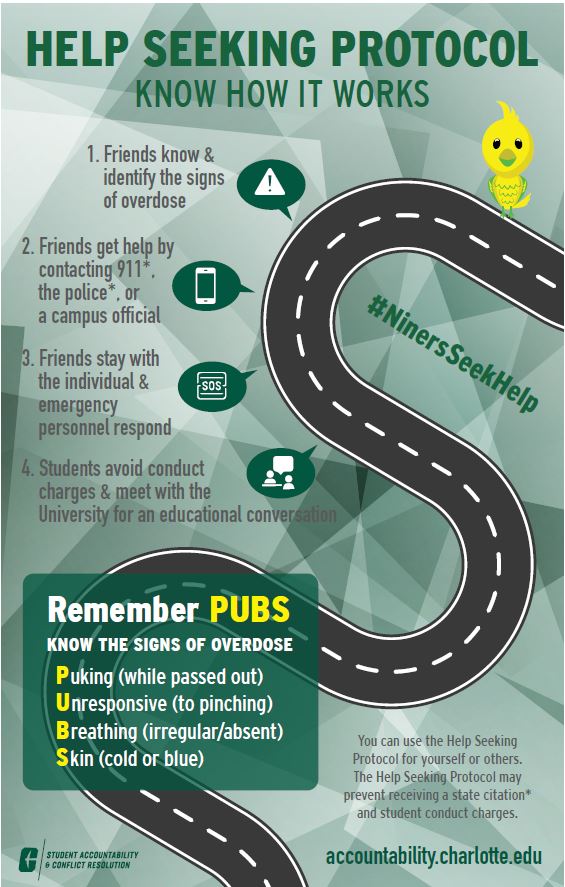When the Help Seeking Protocol is initiated, the student or an organizational representative will be required to meet with a staff member from Student Accountability & Conflict Resolution to discuss the incident and available campus and community resources. The student or organization must agree to a recommended action plan, which may include a referral to the University’s Center for Wellness Promotion, referrals to other campus and/or community resources, educational programming, and/or parental notification. A student or organization, who fails to attend the required meeting or fails to complete any agreed upon action plan, will no longer be eligible for the Protocol and may be referred for Accountability Procedures, as outlined in University Policy 406, The Code of Student Responsibility.
Initiation of the Help Seeking Protocol is at the discretion of the Director of Student Accountability & Conflict Resolution or designee, who will consider all relevant facts in making the decision. If students or organizational representatives believe the Protocol applies, they are encouraged to contact the Director. Decisions on initiation of the Protocol are final and not appealable.
